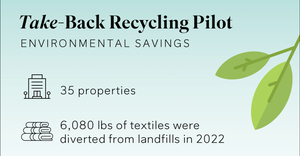In New York City region, 32 charged with organized crime actions in waste industry.
Law enforcement officials have indicted 32 people with charges of organized crime’s continued control over commercial waste hauling industry in New York City and parts of New Jersey.
The main indictment charges 12 people with racketeering and asserting illegal control over commercial waste hauling companies, and 17 others with individual acts of extortion, loansharking and other crimes.
Preet Bharara, U.S. attorney for the Southern District of New York, said in a news release, “As alleged, organized crime still wraps its tentacles around industries it has fed off for decades, but law enforcement continues to pry loose its grip. Here, as described in the indictments, organized crime insinuated itself into the waste disposal industry throughout a vast swath of counties in New York and New Jersey, and the tactics they used to exert and maintain their control come right out of the mafia playbook – extortion, intimidation and threats of violence.”
Twelve of those charged were members and associates of three families – the Genovese, Gambino and Luchese organized crime families. They are charged with participating in a Racketeer Influenced and Corrupt Organizations Act (RICO) enterprise in which they worked together to control various waste disposal businesses in the New York City metropolitan area and multiple counties in New Jersey as the Waste Disposal Enterprise.
The Enterprise was a criminal organization in which the members committed crimes including extortion, loansharking, mail and wire fraud, and stolen property offenses.
The 12 were the leaders of the Enterprise that kept its victims, including small business owners and potential customers, in check by threatening economic and physical harm.
Enterprise members avoided any official connection to the waste disposal businesses they controlled because they either were officially banned from the waste industry or were unlikely to be granted the necessary licenses required to do business because of their connections to organized crime. As a result, Enterprise members concealed themselves behind waste disposal businesses that were officially owned by non-Enterprise members who were able to obtain the necessary licenses because they had no known affiliations with organized crime.
The Washington-based National Solid Wastes Management Association (NSWMA) expressed support for efforts to rid the industry of organized crime.
��“Anyone found guilty of such crimes is not representative of the solid waste and recycling industry.” said Sharon Kneiss, NSWMA president and CEO, in a news release. “And government officials and media reporting on this story should take care to not unfairly impugn the reputations of the hundreds of thousands of law-abiding, hard-working solid waste and recycling professionals, who keep our communities healthy and clean by collecting and managing our garbage and recyclables.
“It is vital that we do what is necessary to maintain the integrity and professionalism of our industry. The government should use every tool at its disposal to act against these types of activities.”
The solid waste industry in New York and New Jersey has worked for decades with law enforcement officials to implement policies to help eliminate elements of organized crime from the business, the NSWMA added.
“Today’s announcement is a testament to the continuing need for vigilance and strong oversight over this industry, as it is clear that organized crime continues to have an influence,” said Shari Hyman, chairman of the New York City Business Integrity Commission.
The multiyear investigation was conducted by the U.S. Attorney’s Office, the FBI and the Westchester County Police Department.
The number of charges, while large, were modest compared with the landmark 1995 indictments against organized crime in New York City’s commercial waste hauling business. Those indictments were the first major intervention by law enforcement to break the mob’s decades-long control over the market and forcing exhorbitant prices. Those indictments involved 114 counts, 17 individuals, 23 companies and four trade waste associations. It also led to the creation of the Business Integrity Commission, (BIC) Hyman recalls in an interview.
“Certainly we believe there is a competitive marketplace in New York City because of the work that the Business Integrity Commission does,” she says. “We continue to have that mission and continue to work toward transparency in the industry so we ensure that a healthy competitive marketplace and a level playing field exists.”
Hyman couldn’t comment on the current indictments in Westchester County and New Jersey because it’s out of the BIC jurisdiction. “Certainly the fact that a property rights system is alleged to have existed in Westchester mirrors behavior that the BIC was established to continue vigilance over and be sure it doesn’t pop up again in New York City.”
About the Author(s)
You May Also Like


